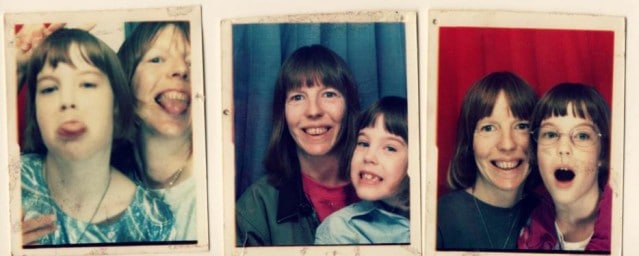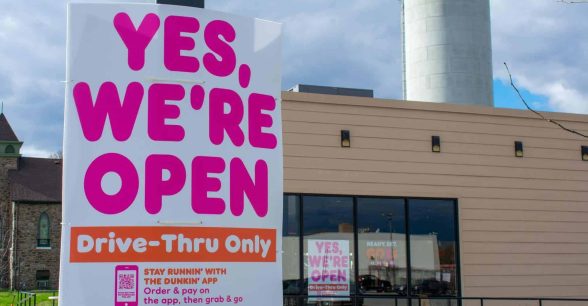How Having a Disabled Mom Helped Shape My Identity as a Disabled Woman
I grew up with a disabled mom. It meant that we didn’t have a car, because my mom was visually impaired and couldn’t drive. We walked to the grocery store weekly, took the bus to doctor’s appointments and the mall, and occasionally took the train into Boston.
I didn’t think much about my mom’s disabilities until physicians started to suspect that I was disabled, too. I failed balance beam day at school—I couldn’t walk in a straight line, one foot in front of the other, on a raised wooden beam a few inches above the floor—and my doctors noticed I had low muscle tone, poor coordination, and difficulty balancing and walking up and down stairs.
Almost immediately, my mom became my biggest advocate, fighting for me and teaching me to fight for myself. Having a disabled mom not only taught me how to advocate, but also helped me build a sense of identity from a young age.
She was one of the only disabled people I knew as a kid – my first exposure to what my life might look like as a disabled adult. Even though my mom and I rarely talked explicitly about what it meant to be disabled when I was growing up, there were moments that I felt it. I inherited my severe Raynaud’s syndrome from her, and in the winter, we’d bundle up head-to-toe in snow gear, go outside for a few minutes at a time, and then rush back inside to warm our hands. Since I was younger, I could usually last through a few more rounds of snowman building than she could, and she’d be waiting when I came back inside, with a cup of hot chocolate and her warm stomach for me to put my purple, swollen fingers on.
My mom showed me, early on, that she was a great role model and a strong, independent person even though she navigated the world differently than able-bodied people, and had different access needs. She was one of the people who never tried to cure me or fix me. She was happy with me as I am.
She didn’t push me to ride a bicycle when I was the age that everyone in the neighborhood could ride circles around me. And because I’m also autistic as well as physically disabled, my mom pushed against physicians who recommended behavioral therapy to stop me from stimming while I was telling her about my day at school. Unlike others, she never asked me to “sit on my hands and feet” to keep them from moving as I spoke. She pushed for schools and doctors to accommodate me, not the other way around.
And she always told me that I should be proud of who I am.
After my mom passed away I missed having that sense of understanding, and a disabled role model. It wasn’t until college that I found another disabled role model in one of my professors, who has chronic fatigue syndrome. She was one of the only other adults who got it—the fact that I needed to think about things like accommodations, accessibility, and flexibility in my college years and beyond. She started conversations with me about what my post-grad life might look like, walking me through options and letting me say whether or not I thought I could handle something.
It’s important to disabled people to have this sense of support and community, to have others around having discussions around accessibility, ableism, and accommodations.
I was fortunate that I made a group of disabled friends in college. Even though our disabilities were varied, we could talk about our experiences without feeling silenced, and every time we made plans, accessibility was a key discussion. Being around other disabled people also made me think, for the first time, that my disability was an identity to claim and be proud of, instead of an impairment that I should hide. It brought me back to those winter evenings warming my hand on my mom’s stomach, because like my mom, my friends saw me for who I am and didn’t ask me to change.
About Rooted In Rights
Rooted in Rights exists to amplify the perspectives of the disability community. Blog posts and storyteller videos that we publish and content we re-share on social media do not necessarily reflect the opinions or values of Rooted in Rights nor indicate an endorsement of a program or service by Rooted in Rights. We respect and aim to reflect the diversity of opinions and experiences of the disability community. Rooted in Rights seeks to highlight discussions, not direct them. Learn more about Rooted In Rights




Yea for writing about having a disabled parent. Needed this. I’m a child of a mom with spina bifida and deaf dad.